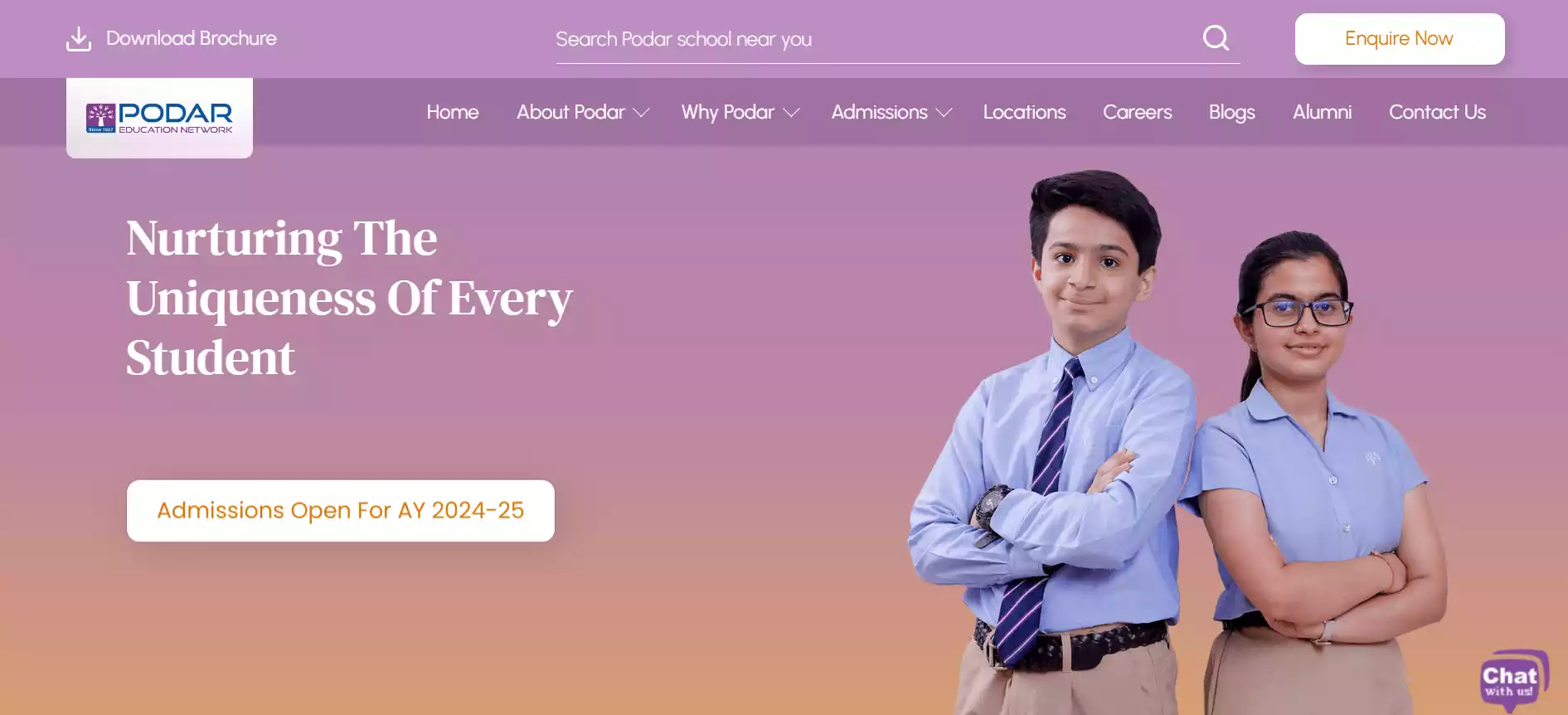1. Define Your Unique Selling Propositions (USPs)
Identifying and communicating your USPs helps differentiate your school from others, making it easier for prospective students and parents to understand why they should choose your institution over competitors.
How to Define Your USPs:
- Academic Excellence: Highlight any unique academic programs, advanced placement courses, or special curricula that set your school apart. Emphasize achievements such as high standardized test scores, graduation rates, or college acceptance rates.
- Special Programs: Showcase any unique programs such as STEM initiatives, arts programs, foreign language immersion, or special education services.
- Facilities and Resources: Point out any state-of-the-art facilities, technology resources, or extracurricular opportunities that enhance the educational experience.
- Faculty Expertise: Promote the qualifications and experience of your teaching staff, including any awards, certifications, or specialized training they have.
How to Promote Your USPs:
- Website: Create dedicated sections on your website to showcase your USPs with detailed descriptions and testimonials.
- Marketing Materials: Include USPs in brochures, flyers, and advertisements.
- Social Media: Regularly feature posts about your USPs to keep them top-of-mind for your audience.
2. Develop a Strong Online Presence
A robust online presence ensures potential students and parents can easily find and learn about your school. It also helps establish your school’s credibility and authority in the education sector.
Website Optimization
-
- User Experience: Ensure your website is easy to navigate, with clear menus and a responsive design for mobile devices.
- Content: Provide comprehensive information about admissions, academic programs, faculty, and extracurricular activities.
- SEO: Optimize your website for search engines by including relevant keywords, meta descriptions, and high-quality content to improve your search engine ranking.
-
![]()
Content Marketing
- Blog Posts: Write articles on topics such as educational tips, school events, or success stories. This not only provides value but also helps with SEO.
- Resources: Offer downloadable resources like eBooks or guides on topics related to education and parenting.
3. Leverage Social Media
Social media platforms provide a direct way to connect with potential students and parents, build community engagement, and promote your school’s achievements and events.
How to Utilize Social Media:
-
Platform Selection:
- Facebook: Ideal for sharing news, events, and engaging with parents and alumni through groups and pages.
- Instagram: Use for sharing visually appealing content such as photos and videos of school events, classroom activities, and student achievements.
- LinkedIn: Focus on connecting with alumni, showcasing faculty achievements, and engaging with the professional community.
-
Content Strategy:
- Visual Content: Post high-quality images and videos that highlight school activities, facilities, and student experiences.
- Interactive Posts: Create polls, Q&A sessions, or live streams to engage your audience and address their questions.
- Testimonials: Share stories and testimonials from current students, parents, and alumni to build credibility and trust.
4. Invite Celebrities for School Events
Inviting a celebrity to a school event can generate significant media attention and public interest. A celebrity’s presence can enhance the event’s appeal and attract more attendees, including prospective students and their families.
How to Effectively Use Celebrity Appearances:
- Choose the Right Celebrity: Select a celebrity whose image aligns with your school’s values and target audience. This could be a local figure, an alum, or someone with a relevant connection to education or community service.
- Plan the Event: Organize the event around the celebrity’s appearance, such as a special assembly, fundraiser, or community outreach program. Ensure that the event is well-publicized and offers meaningful engagement for attendees.
- Leverage Media Coverage: Use the celebrity’s appearance to gain media coverage. Send press releases to local news outlets and promote the event through your social media channels and website.
- Engage with the Community: Encourage students and parents to participate in the event and share their experiences on social media. This can help amplify the event’s reach and impact.
![Invite Celebrity for School Event.jpg Invite Celebrity for School Event]()
By integrating these strategies into your marketing plan, you can effectively promote your school, attract new students, and build a positive reputation within your community. Each approach plays a crucial role in creating a comprehensive marketing strategy that resonates with prospective families and supports your school’s growth and success.
5. Implement a Referral Program
A referral program leverages the networks of current students and parents to bring in new families, offering an incentive for successful referrals can boost word-of-mouth marketing.
How to Create a Referral Program:
- Incentives: Offer rewards such as tuition discounts, gift cards, or special events for families who refer new students.
- Promotion: Clearly communicate the details of the referral program through emails, newsletters, and social media.
- Tracking: Implement a system to track referrals and ensure that rewards are distributed promptly.
6. Collaborate with Local Businesses and Organizations
Partnering with local businesses and organizations helps increase your school’s visibility and demonstrates your commitment to the community.
How to Build Effective Partnerships:
- Sponsorships: Sponsor local events, sports teams, or community programs to raise awareness of your school.
- Joint Events: Organize events such as school fairs, educational workshops, or charity drives in collaboration with local businesses.
- Community Service: Engage in community service projects that involve students and faculty, showcasing your school’s dedication to making a positive impact.
7. Invest in Paid Advertising
Paid advertising helps you reach a broader audience quickly and can be targeted to specific demographics, locations, and interests.
How to Utilize Paid Advertising:
- Google Ads: Create targeted search ads for keywords related to education and local searches. Use display ads to reach users who visit relevant websites.
- Social Media Ads: Run targeted ads on platforms like Facebook and Instagram to reach specific demographics such as parents in your area or those interested in educational content.
- Print Ads: Place ads in local newspapers, magazines, or community bulletins to reach families who prefer traditional media.
8. Engage with Educational Forums and Communities
Participating in educational forums and communities allows you to connect with parents and students who are actively seeking information about schools.
How to Engage Effectively:
- Join Relevant Forums: Participate in online forums and discussion groups related to education and parenting. Provide helpful information and answer questions to build your reputation.
- Share Insights: Contribute articles or posts on topics related to education, showcasing your expertise and knowledge.
- Promote School Events: Share information about upcoming events, open houses, or special programs in relevant online communities.
9. Utilize Email Marketing
Email marketing allows you to stay in touch with prospective and current families, providing updates, nurturing leads, and encouraging enrollment.
How to Implement Effective Email Marketing:
- Segmentation: Segment your email list to send targeted messages to different groups, such as prospective families, current parents, or alumni.
- Content: Provide valuable content such as school updates, event invitations, admission deadlines, and educational tips.
- Automation: Set up automated email campaigns for onboarding new leads, reminding about deadlines, and nurturing relationships with prospective families.
10. Showcase Achievements and Success Stories
Highlighting achievements and success stories helps build credibility and demonstrate the positive impact of your school’s programs.
How to Showcase Achievements:
- Student Success Stories: Share stories of student accomplishments, awards, and academic achievements. Include testimonials from students and parents.
- Alumni Success: Feature stories about successful alumni and their achievements. This can attract families interested in long-term success for their children.
- School Achievements: Promote any awards, recognitions, or milestones your school has achieved, such as accreditation, high test scores, or successful programs.
By implementing these strategies in detail, you can effectively promote your school business, attract new students, and establish a strong, positive reputation within your community. Each strategy plays a crucial role in building a comprehensive marketing approach that resonates with prospective families and supports your school’s growth.
![birthday occasion]() Birthday Gifts
Birthday Gifts
![anniversary occasion]() Anniversary Gifts
Anniversary Gifts
![women]() Women
Women
![men]() Men
Men
![Couples]() Couples
Couples
![Couples]() Wedding Gifts
Wedding Gifts

 Birthday Gifts
Birthday Gifts
 Women
Women
 Men
Men
 Anniversary Gifts
Anniversary Gifts
 Wedding Gifts
Wedding Gifts


 We now support international payments
We now support international payments
